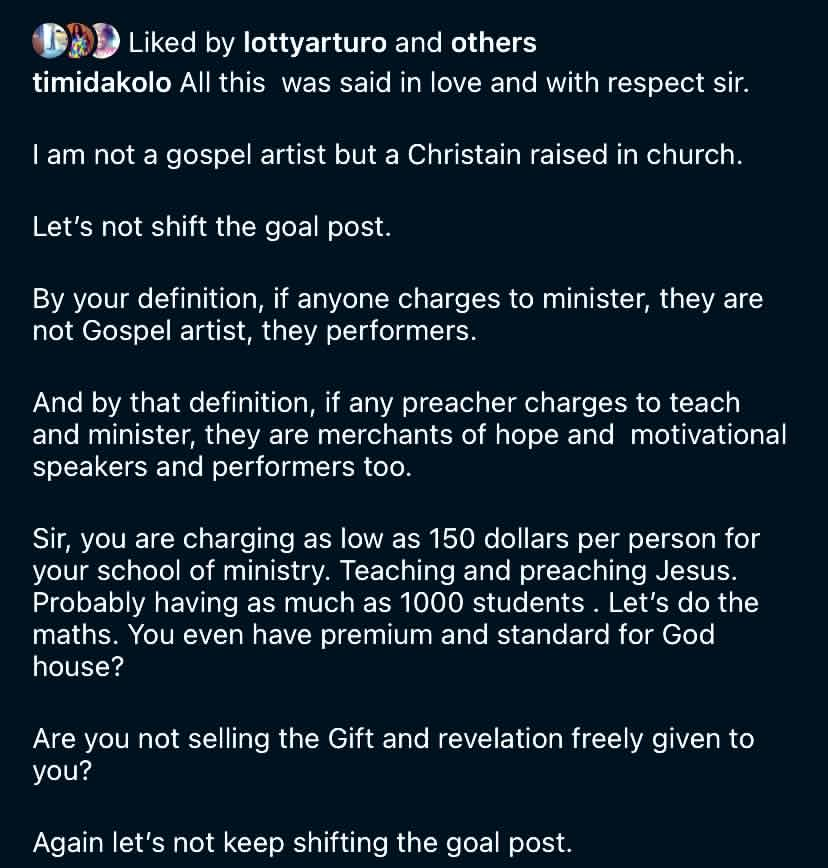Apostle Femi Lazarus and singer Timi Dakolo are at the center of a heated debate regarding the financial expectations of gospel musicians in Nigeria. The controversy began when Apostle Lazarus, a prominent preacher, criticized the commercialization of gospel music, alleging that some gospel artists demand exorbitant fees before performing in churches and religious events.
The Allegations: Gospel Artists Charging Exorbitant Fees
During a sermon, Apostle Lazarus shared an example of a gospel artist who reportedly requested a $10,000 honorarium, a non-refundable 50% deposit, first-class flight tickets, and accommodations for a 40-person entourage before agreeing to minister at an event. He expressed his disappointment, suggesting that those who truly understand the heart of God would not place such financial burdens on churches.
His remarks quickly gained attention, sparking discussions about the intersection of ministry and money. Many agreed with his sentiments, arguing that gospel music should be a service to God rather than a business transaction.
Timi Dakolo Claps Back: “Name the Artist”

Timi Dakolo, a Nigerian singer known for both gospel and secular music, was quick to challenge Apostle Lazarus’ claims. In a series of social media posts, Dakolo questioned the validity of the pastor’s accusations, asking him to name the gospel artist in question. He also argued that no Nigerian gospel musician operates with a 40-person crew, implying that the claims were exaggerated.
Furthermore, Dakolo pointed out a perceived hypocrisy in Apostle Lazarus’ position. He noted that the pastor charges $150 per person for his ministry school, suggesting that if pastors can monetize their teachings, gospel musicians should also be allowed to charge for their services. This counterargument added fuel to the already heated discussion, shifting the focus to the broader issue of money in ministry.
The Broader Debate: Ministry or Business?
This exchange has ignited a larger conversation about whether gospel musicians should charge fees for their performances and, if so, what constitutes a reasonable amount. Some argue that gospel artists, like secular musicians, have financial responsibilities—studio costs, band members, and personal upkeep—and should be compensated for their work. Others believe that ministry should not be treated as a business, emphasizing that true service to God should be free of financial demands.
Apostle Lazarus’ comments reflect a growing concern among some church leaders that gospel music is becoming too commercialized, with artists prioritizing profits over ministry. On the other hand, Dakolo’s response highlights the double standards often applied to different roles within religious circles—while pastors, event organizers, and speakers charge fees, gospel musicians are often criticized for doing the same.
The discussion between Apostle Lazarus and Timi Dakolo is not just about one comment or one artist—it speaks to a larger issue in the Christian community. Should gospel artists be paid for their ministry? If so, how much is too much?
If you enjoyed this article, click here to read more informative posts, also check us out on Instagram for fun and engaging content.
















